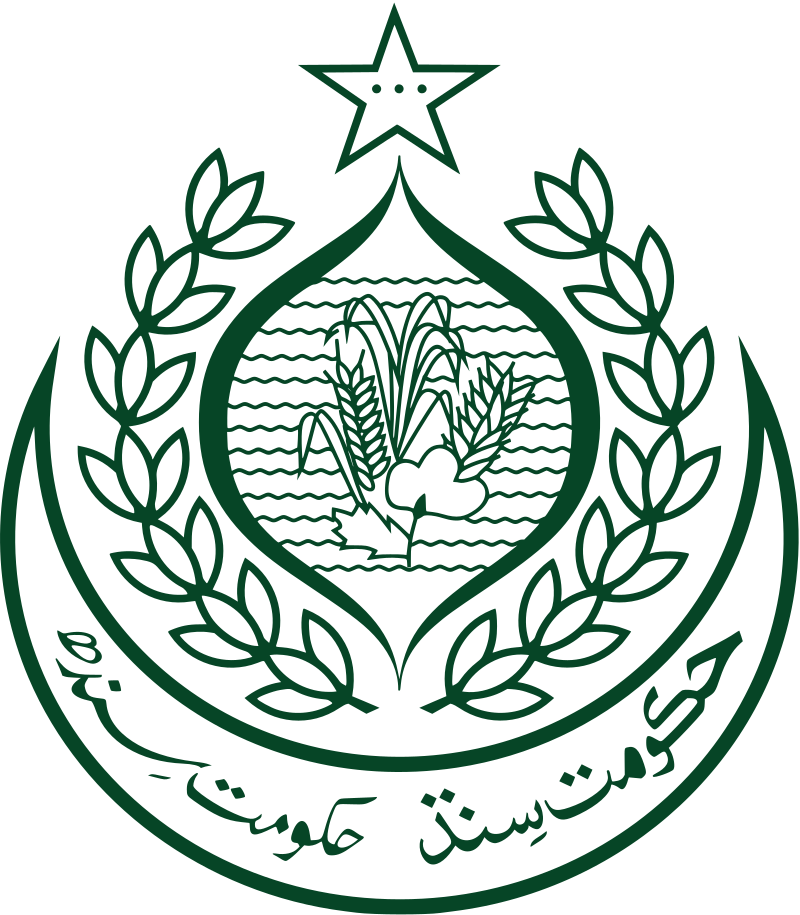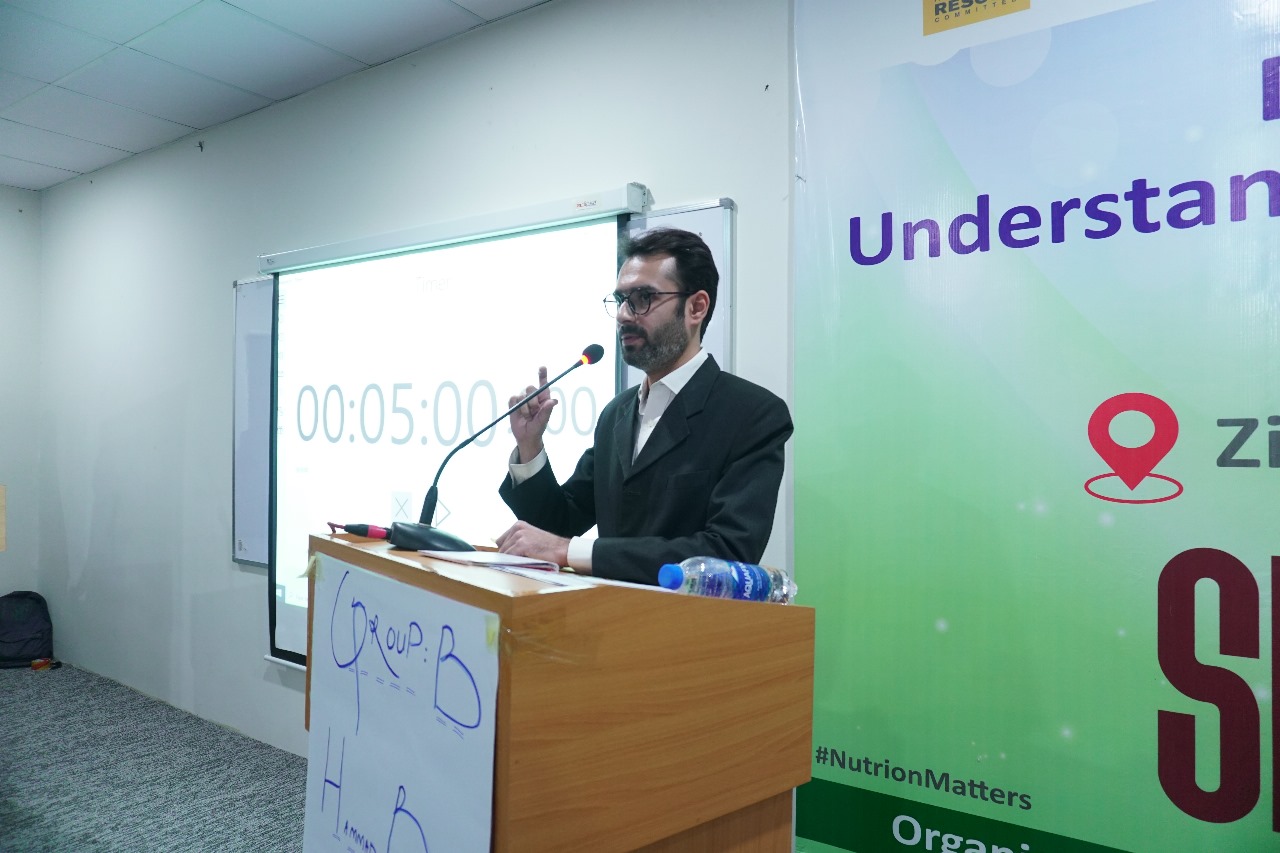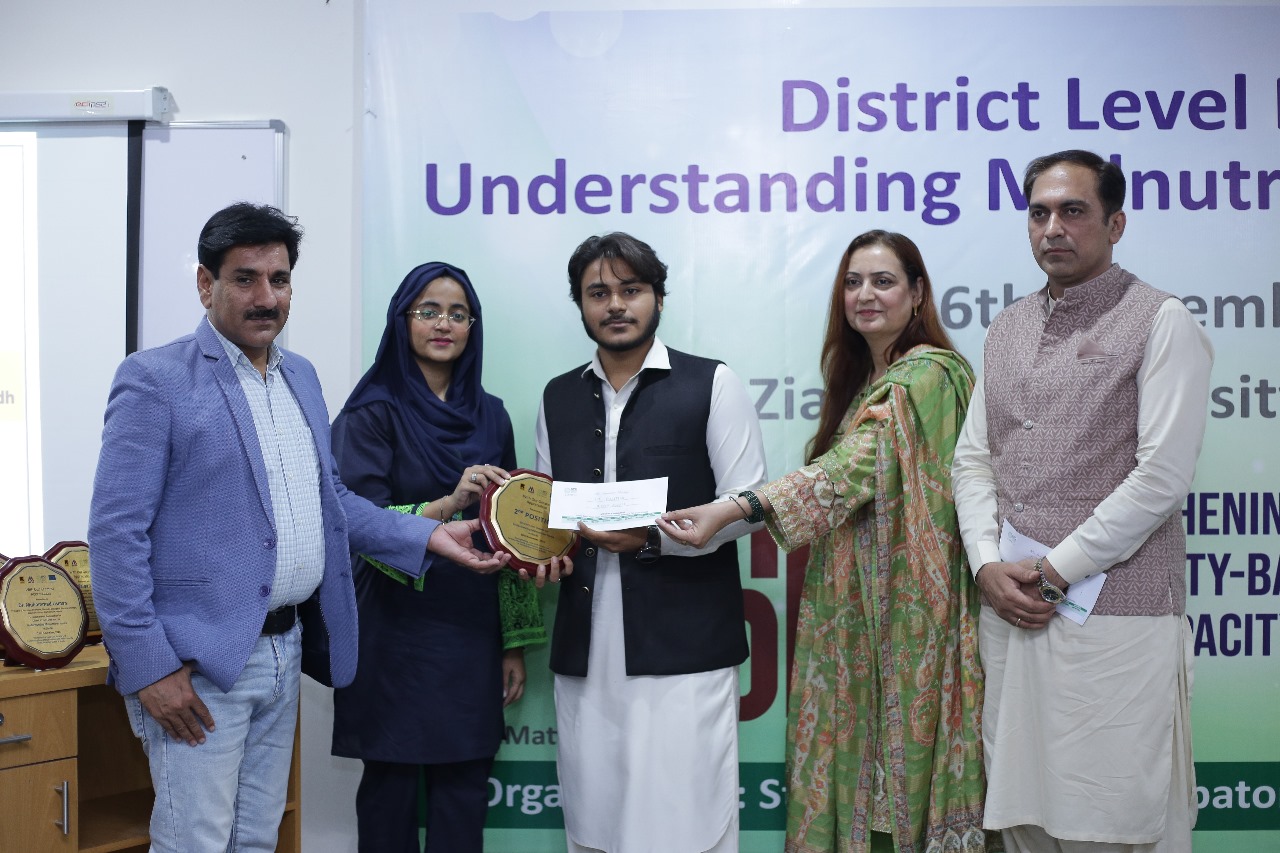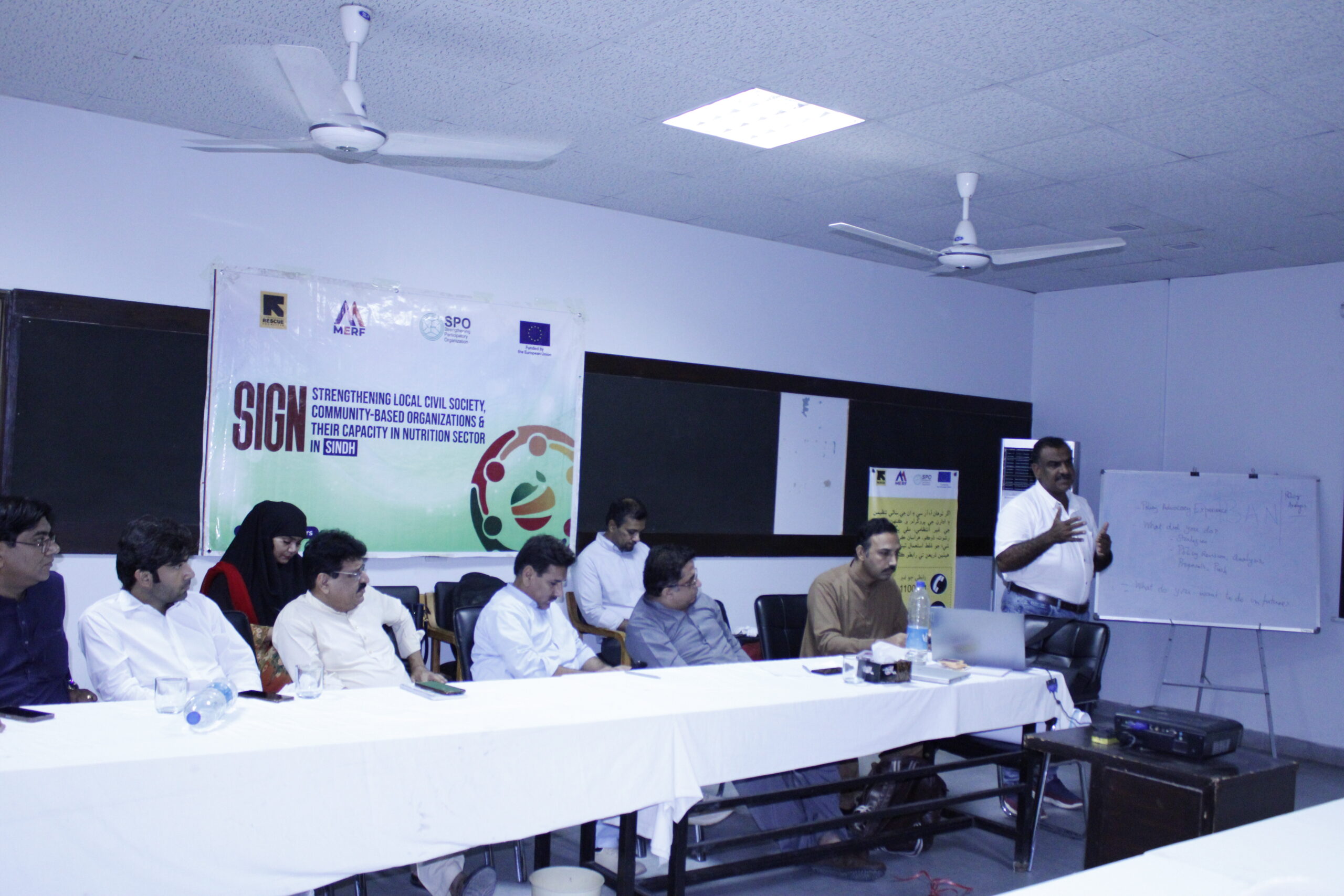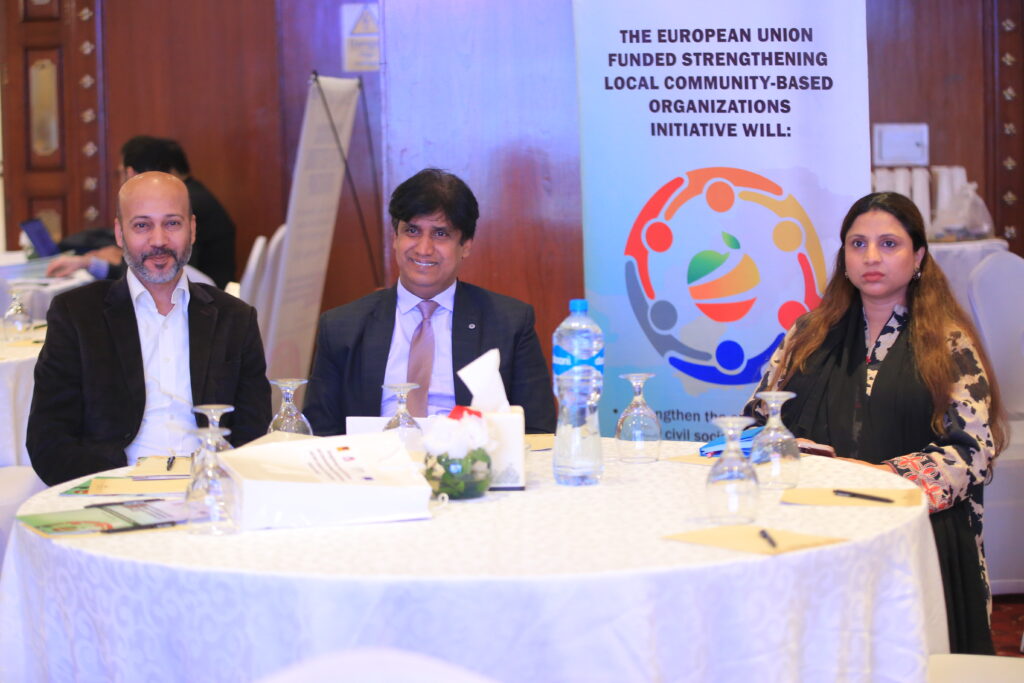
CSOs Policy Review Working Group Consultation meeting on Policy Advocacy
Strengthening Participatory Organization (SPO) in collaboration IRC and 15 CSO policy review working group periodically conducted consultation meetings on policy review. These meetings also aimed to assess progress on district and provincial advocacy action plans. The meeting focused on strengthening policy advocacy efforts, reviewing action plans, and enhancing stakeholder engagement for effective nutrition policy implementation at district and provincial level.
CSOs policy review working group alliance, independently strategized the policy advocacy actions, during each meeting advocacy actions by CSOs at district and provincial level were reviewed and recommended the strategizes to implement nutrition related Beast-feeding Act 2023 and Food Fortification Act at district level.
During policy review meetings CSOs presented their key achievements, including the formation and orientation of District Advocacy Groups (DAGs), stakeholder meetings, and joint advocacy efforts in Sukkur, Khairpur, Ghotki, Naushahro Feroze, and Kashmore.
CSOs discussions focused on reinforcing advocacy agendas in District Coordination Committee on Nutrition (DCCN) forums and aligning district-level actions with achievement of provincial nutritional goals. Key topics included improving stakeholder collaboration, identifying policy gaps, and leveraging data for informed decision-making.
During these policy review meetings, CSOs develop district and provincial advocacy action plans, including a timeline for activities such as district-level consultation meetings, policy recommendations, and provincial-level networking events.
Participants emphasized the importance of collaborative advocacy, lobbying with parliamentarians, and conducting social media campaigns to amplify nutrition policy awareness. The meeting successfully laid the groundwork for sustained policy engagement and collaboration to address malnutrition challenges across Sindh.
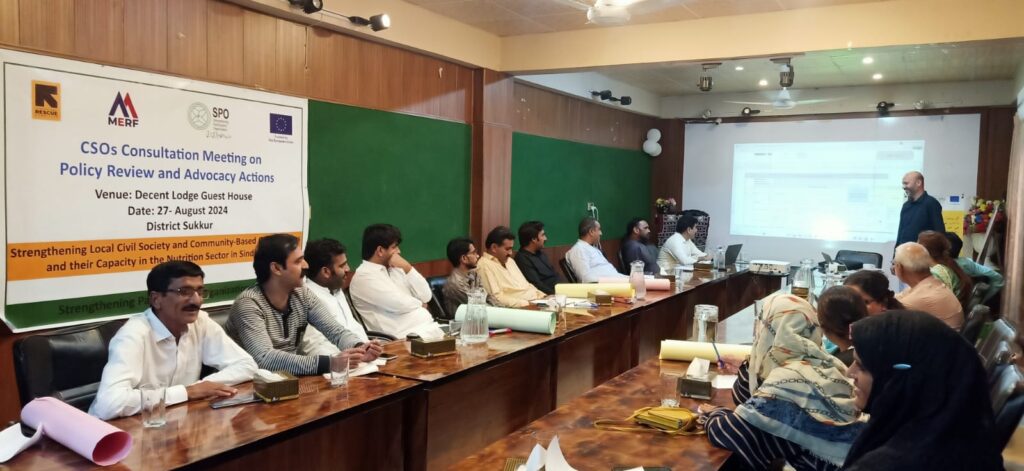
Nutrition Policy Advocacy Sindh: The efforts to influence and promote the development, implementation, and improvement of nutrition policies in Sindh. This includes working with various stakeholders, such as government bodies and CSOs, to ensure that policies effectively address malnutrition and improve nutrition outcomes in the province.
CSO-Led Advocacy Initiatives: Advocacy efforts driven by Civil Society Organizations (CSOs) to influence public policy and promote changes in laws or practices. These initiatives are focused on advocating for the rights and needs of communities, particularly in areas such as nutrition, health, and social welfare.
District Coordination Committee on Nutrition (DCCN): A local-level coordination body that brings together various stakeholders (government, CSOs, health professionals, etc.) to address nutrition issues in specific districts. The DCCN plays a crucial role in aligning district-level actions with broader nutrition goals and ensuring the efficient delivery of nutrition services.
Strengthening Nutrition Governance: Efforts aimed at improving the systems, policies, and frameworks that govern nutrition-related programs and interventions. This includes ensuring that nutrition policies are effectively implemented, monitoring systems are in place, and that accountability mechanisms are established to track progress.
DCCN Advocacy Meetings: Meetings held within the District Coordination Committee on Nutrition to discuss nutrition-related issues, review progress on local nutrition interventions, and plan advocacy actions. These meetings provide a platform for stakeholders to collaborate and ensure that nutrition initiatives are effectively implemented at the district level.
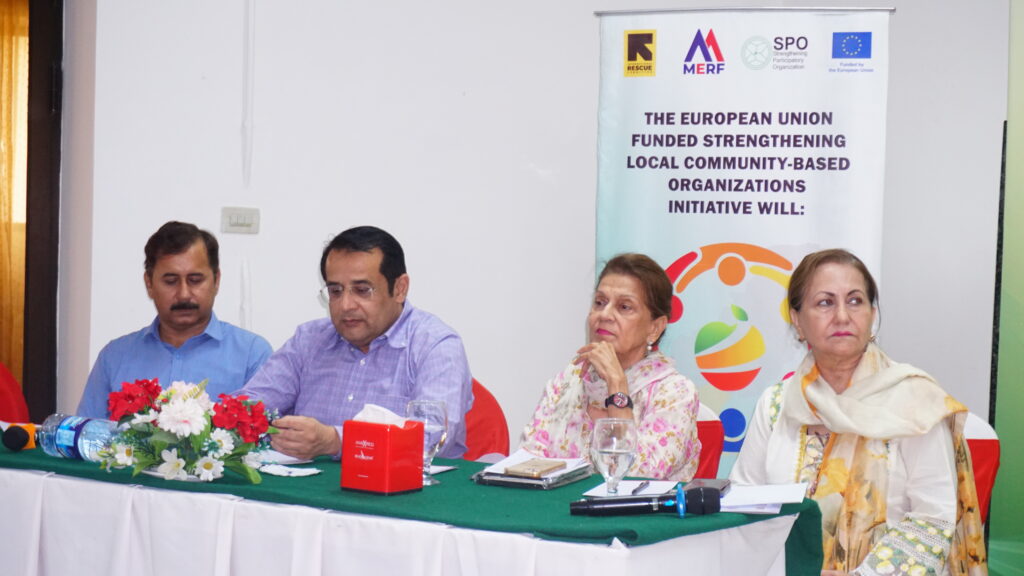
Provincial Nutrition Networking Events: Events aimed at fostering collaboration and knowledge sharing among stakeholders involved in nutrition work across the province. These events help align provincial nutrition efforts, build partnerships, and ensure that best practices are shared and adopted at the local level.
Multi-Sectoral Collaboration on Nutrition: Collaborative efforts across multiple sectors (e.g., health, agriculture, education, and social welfare) to address malnutrition. This approach recognizes that nutrition is influenced by factors beyond health and requires coordinated actions across different sectors to achieve lasting improvements.
Malnutrition Policy Implementation: The process of putting into practice policies and strategies designed to reduce malnutrition. This includes ensuring that nutrition policies are followed, resources are allocated appropriately, and stakeholders are engaged to address malnutrition at both the provincial and district levels.
Advocacy Action Planning Sindh: The process of developing detailed plans for advocacy actions, which include strategies, timelines, and specific activities to influence nutrition policy, engage stakeholders, and raise awareness about malnutrition issues in Sindh.
Community-Driven Nutrition Solutions: Nutrition interventions and strategies that are developed and implemented based on the input, needs, and priorities of local communities. This approach emphasizes the importance of community participation in identifying and solving nutrition challenges to ensure that interventions are effective and culturally appropriate.

